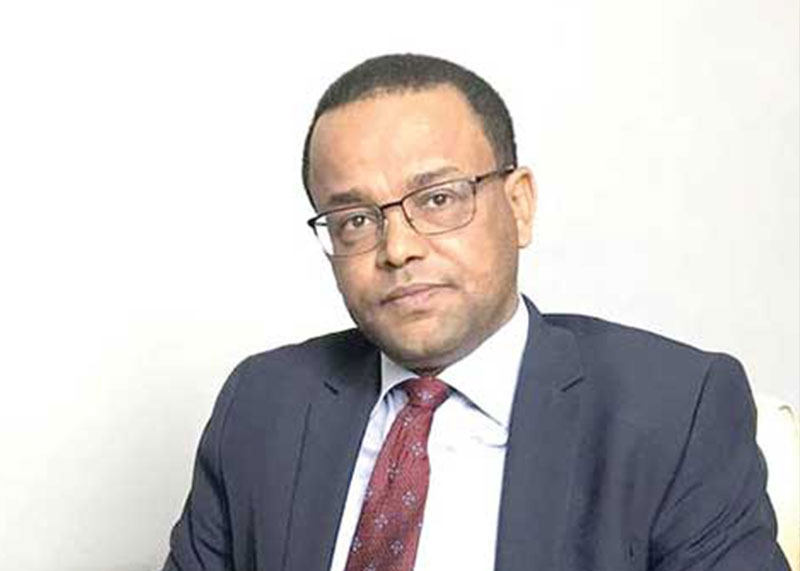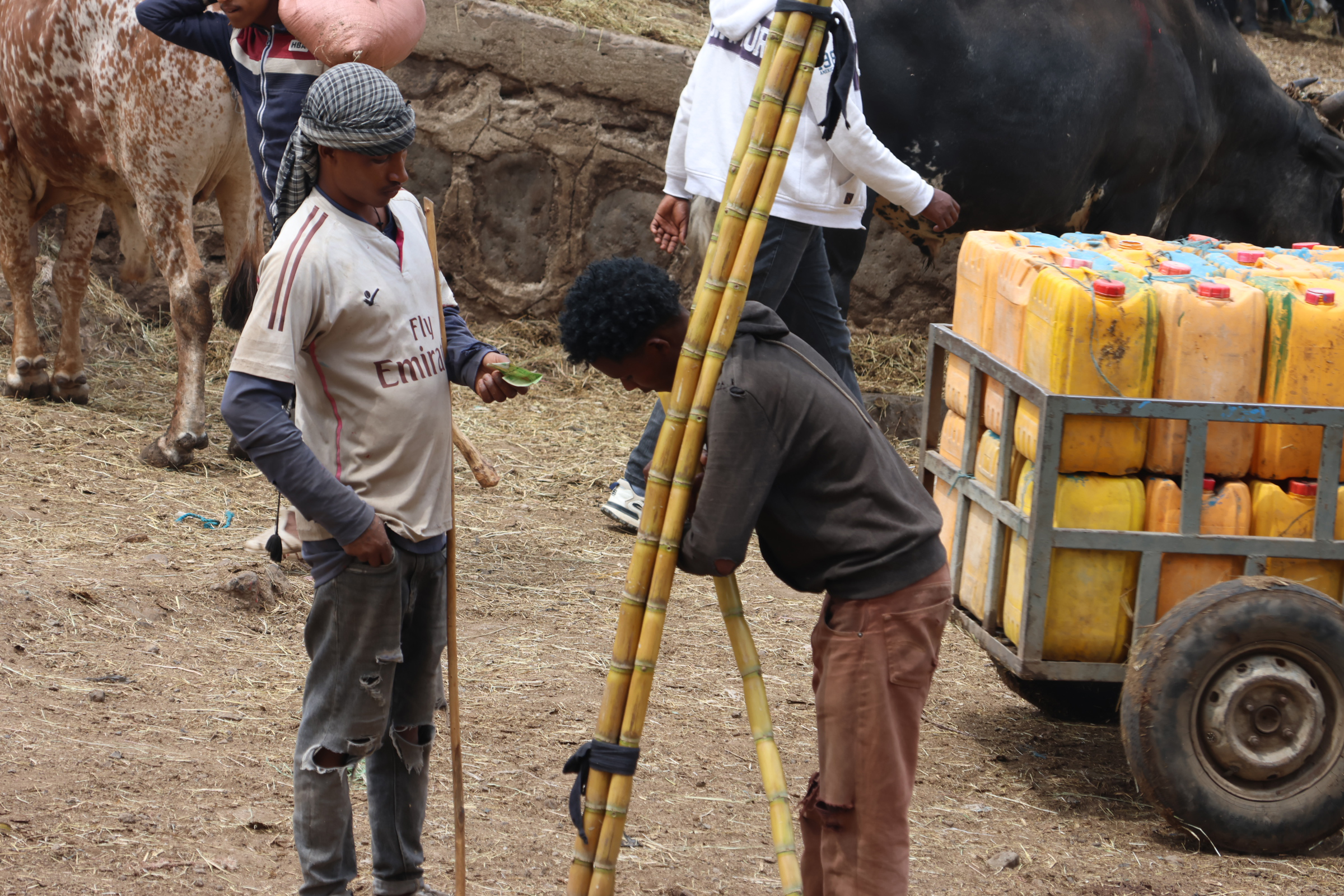
Sep 24 , 2022
By Christian Tesfaye
We have all heard the news by now. The black market rate for one dollar is now around 90 Br. The official rate, for those with access, is around 53 Br. This is a premium of over 70pc, unheard of as far as memory serves me.
Look at the Balance of Payments, and the reason why becomes clear. Despite rises in goods and service export, the four billion dollar escalation in goods’ import values, has put the balance position in negative territory. Thank global price rises in fuel, grains and edible oil for this. An official two billion dollars more in foreign currency rushed out of the country than was brought in.
Cepheus Growth Capital, an investment management firm, estimates that the foreign currency reserves of the central bank have fallen by nearly half to 1.5 billion dollars. Banks only have around one billion dollars in reserves. There has been massive drawdown to cover foreign currency expenses in goods import, debt service and a fall in both new borrowing and grants. It is a very precarious situation.
It is thus no surprise that the black market rates have gone up. It is simple supply and demand. More buyers of foreign currency – including car importers – unable to satisfy their foreign currency needs from commercial banks are taking their business to informal market players and willing to pay phenomenal premiums for the access. The joke here is that commercial banks themselves charge high fees to sell their non-existent foreign currency. The higher the demand, the larger the spread between the official and informal rates. The lifting of restrictions against franco valuta is also believed to feed this demand, as importers rush to buy dollars and euros.
On the supply side, a good chunk of the remittance is being diverted to the black market. Here again, supply and demand apply. Few members of the diaspora exchange their dollars at banks, which offer a measly 53 Br rate compared to widely available black market players that bid nearly double that amount. It is not a competition. The other joke here is that this happens under the nose of the authorities in a popular spot, National Theatre. It has been public knowledge for decades that it is the epi-centre of black market trading.
It seems that the government has a few plans against this. It is impossible to say to what extent the decision to liberalise the financial sector is influenced by the foreign currency shortage but it is most likely in the minds of policymakers. The government is also trying to get an International Monetary Fund (IMF) programme going. Beyond that, it is merely appealing to the good nature of the diaspora community to remit through formal channels, where the central bank buys 70pc at the prevailing market rate.
There will be no way out of this until productivity in Ethiopia improves in agriculture (to address food insecurity and reduce the need to import so much grain) and manufacturing (to diversify out of the volatile commodity market and exploit the country’s cheap labour). Until the merchandise trade deficit, currently at 14 billion dollars, or around 14pc of GDP, or more than three-fold of revenues from goods export, could be addressed, it is impossible to get anywhere.
The structural issue of the age-old foreign currency crisis also needs to be addressed: lack of a float. Unless the Birr can be exchanged at a market rate, economic slowdowns will always come with a foreign currency crisis. Of course, it is probably a good idea to improve the political situation and work out issues on debt burden with development partners first.
PUBLISHED ON
Sep 24,2022 [ VOL
23 , NO
1169]


Radar | Jun 12,2021

Fortune News | Sep 10,2021

Radar | Aug 28,2021

In-Picture | Apr 27,2025

Commentaries | Aug 03,2024

My Opinion | 131674 Views | Aug 14,2021

My Opinion | 128043 Views | Aug 21,2021

My Opinion | 126002 Views | Sep 10,2021

My Opinion | 123625 Views | Aug 07,2021

Dec 22 , 2024 . By TIZITA SHEWAFERAW
Charged with transforming colossal state-owned enterprises into modern and competitiv...

Aug 18 , 2024 . By AKSAH ITALO
Although predictable Yonas Zerihun's job in the ride-hailing service is not immune to...

Jul 28 , 2024 . By TIZITA SHEWAFERAW
Unhabitual, perhaps too many, Samuel Gebreyohannes, 38, used to occasionally enjoy a couple of beers at breakfast. However, he recently swit...

Jul 13 , 2024 . By AKSAH ITALO
Investors who rely on tractors, trucks, and field vehicles for commuting, transporting commodities, and f...

Jun 28 , 2025
Meseret Damtie, the assertive auditor general, has never been shy about naming names...

Jun 21 , 2025
A well-worn adage says, “Budget is not destiny, but it is direction.” Examining t...

Jun 14 , 2025
Yet again, the Horn of Africa is bracing for trouble. A region already frayed by wars...

Jun 7 , 2025
Few promises shine brighter in Addis Abeba than the pledge of a roof for every family...

Jun 29 , 2025
Addis Abeba's first rains have coincided with a sweeping rise in private school tuition, prompting the city's education...

Jun 29 , 2025 . By BEZAWIT HULUAGER
Central Bank Governor Mamo Mihretu claimed a bold reconfiguration of monetary policy...

Jun 29 , 2025 . By BEZAWIT HULUAGER
The federal government is betting on a sweeping overhaul of the driver licensing regi...

Jun 29 , 2025 . By NAHOM AYELE
Gadaa Bank has listed 1.2 million shares on the Ethiopian Securities Exchange (ESX),...